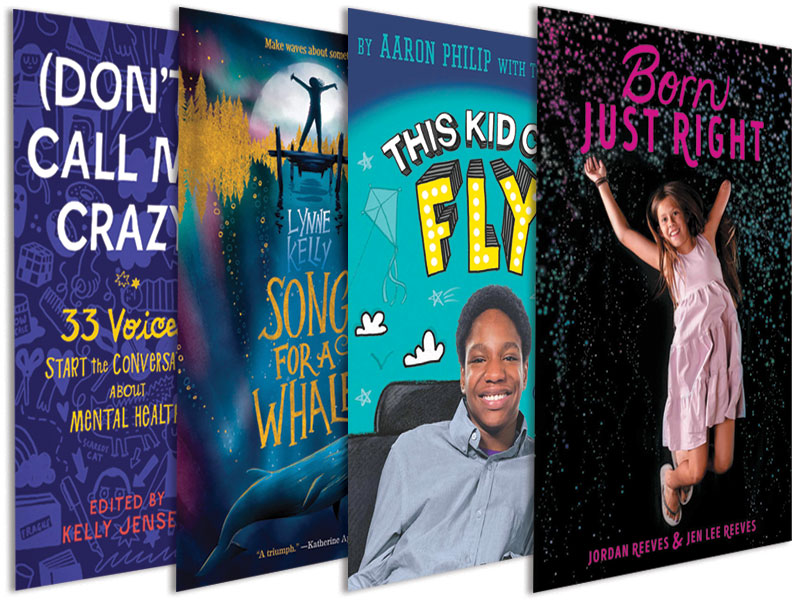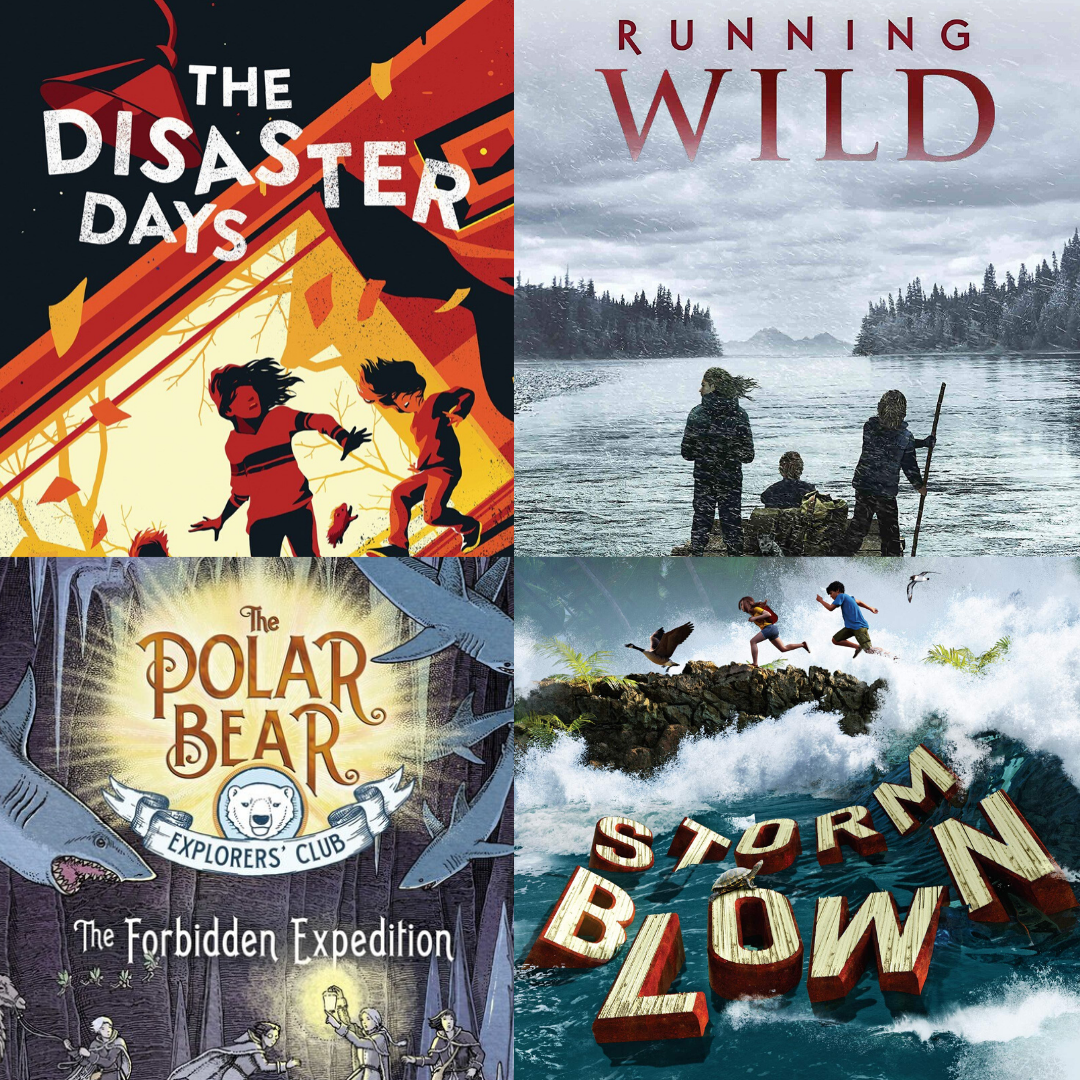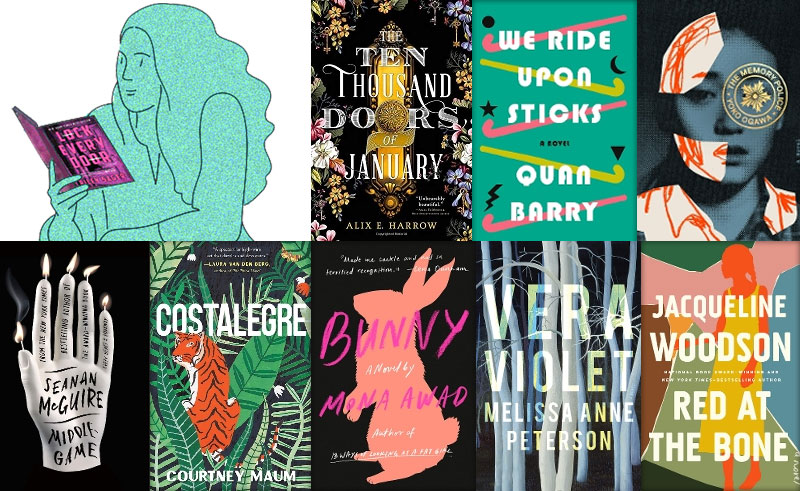A Conversation about Periods with Aliza Werner

Note from Amanda: I way over-research. I way over-write. When I’m working on an article I always think, if only I could have a few… hundred… more words. As I worked on Let’s Talk Periods: Middle Grade Books About Menstruation, I connected with Aliza Werner about a presentation she was a part of at NCTE called “Our Blood is Beautiful!: Shattering Cycles of Shame, Stigma, and Silence to Create Space for Stories of Menstruation.” Because of how the article shaped up and word count limits, I wasn’t able to include anything from her in the article, but wanted to share her thoughts here during Period Poverty Awareness Week.

Amanda: What sparked the idea for a NCTE panel about periods? Who was involved?
Aliza: I have always been drawn to discussions in education and literacy spaces that push tough topics to the center of public discourse. Having presented at NCTE for a number of years, I have found it both necessary and empowering to participate in sessions that name and address topics that challenge the boundaries of “polite” conversation: mental health, religion, #MeToo, Jewish identity, menstruation. The most uncomfortable discussions are often the ones that need to be had the most. Discourse avoided only feeds the stigma and shame that surround such personal, yet universal, experiences.
ADVERTISEMENT
ADVERTISEMENT
When I heard Aida Salazar and Yamile Saied Mendez were editing an anthology titled Calling the Moon: 16 Period Stories from BIPOC Authors, I knew this would be a powerful, pioneering collection highlighting the complex and cultural experiences of folks who menstruate. Aida’s middle grade novel-in-verse The Moon Within was a story I could not get out of my head after I read it. That the experience of main character Celi getting her period for the first time could be sacred, awkward, and transformational all at once spoke to the transcendent experience of menstruation. The stories and poems in the anthology echoed this universality, while teaching me about the ways various cultures mark this moment in a menstruator’s life. This was a collection of stories representative of half of the global population, and vital for the other half to read, respect, and revere.
Aida and Yamile were thrilled to join the proposal, along with some of the authors, including Erin Entrada Kelly and Ibi Zoboi, and fellow educator Jennifer Vincent. Getting publishers to sponsor authors for an anthology proved to be a challenge and our panel ended up being Aida, Jennifer, and me. When I submitted the proposal, I wanted an eye-grabbing, breath-catching title that would demand the attention of the reviewers. And so it was called “Our Blood is Beautiful!: Shattering Cycles of Shame, Stigma, and Silence to Create Space for Stories of Menstruation”. Blood. Beautiful. Exclamation Point! This was to be a panel that discussed menstruation with the hope it would open doors to talk about puberty, bodily autonomy, consent, gender, access, and more. What remains unspoken, exists in unexamined darkness, and I was determined to bring this conversation into the light at NCTE.
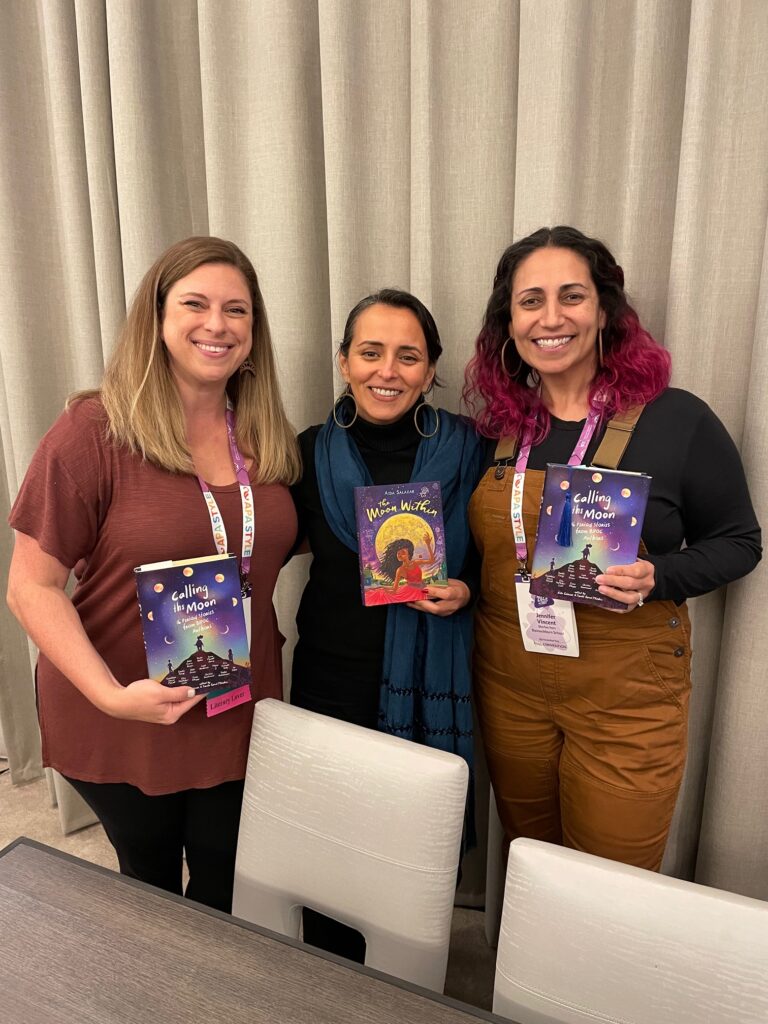
Amanda: What were some of the things the panel discussed?
Aliza: The panel used the anthology as a jumping off point to share how to leverage books through literary, social, historical, and anthropological lenses, and how educators can affirm and celebrate cultural and generational experiences of menstruation through themes of sisterhood, identity, and tradition. We wanted to examine the many ways menstruation is experienced around the world by creating a brave space for participants to listen, speak, and be affected by our conversation. We explored the shame and stigma cultivated by society, as well as the evolutions that are possible that transform something shamefully suppressed into something sacred, powerful, and beautiful. We noticed the patterns, rhythms, and connections inherent in menstruation that echoed the ebb and flow, wax and wane, of nature. Most importantly, we created space for audience participation: sharing resources, advice, advocacy, and stories, all to support the young menstruators in our classrooms and communities. The session became delightfully collaborative as one attendee after another spoke up and shared.
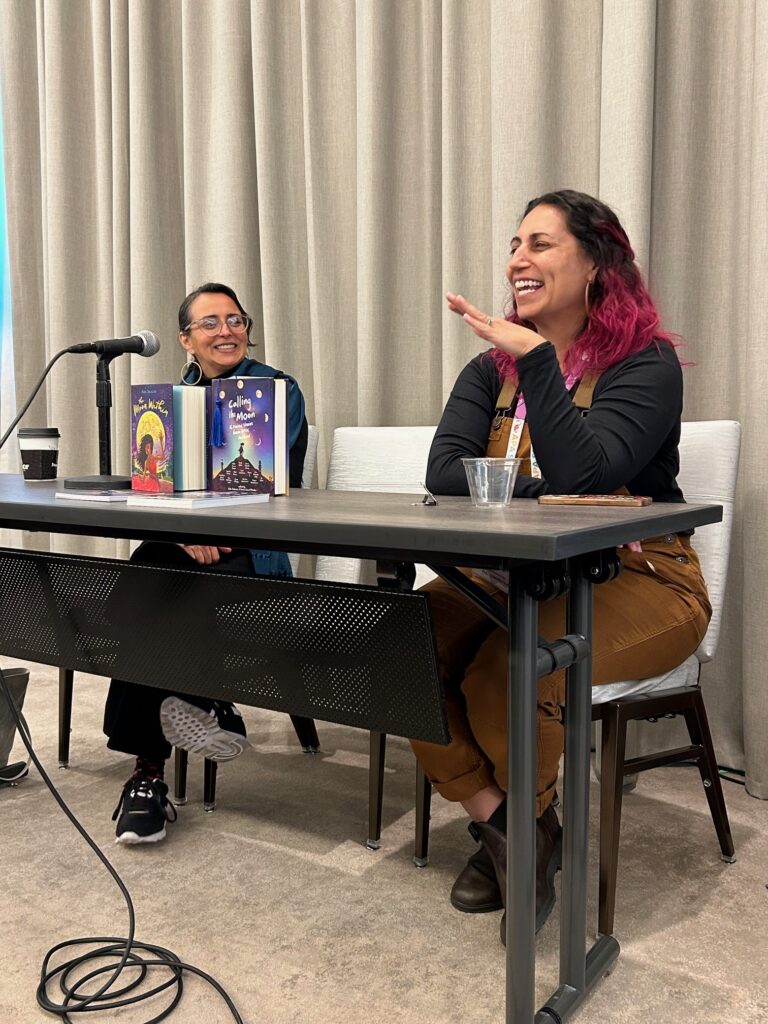
Amanda: What was the event well-attended? Did you get any feedback on the presentation?
Aliza: The event was VERY well attended. With an assumptive glance, it was clear that most of the audience experience or experienced menstruation themselves. There was a noticeable imbalance of non-menstruators amongst the attendees, however, one spoke up to share that he was attending to truly learn something new and to understand how to better support the menstruators in his high school classroom. This session was scheduled on the first day of the conference, and folks came up to me throughout the next few days to express their appreciation of the session and how it inspired them to support their menstruating students. The feedback was positive and powerful.
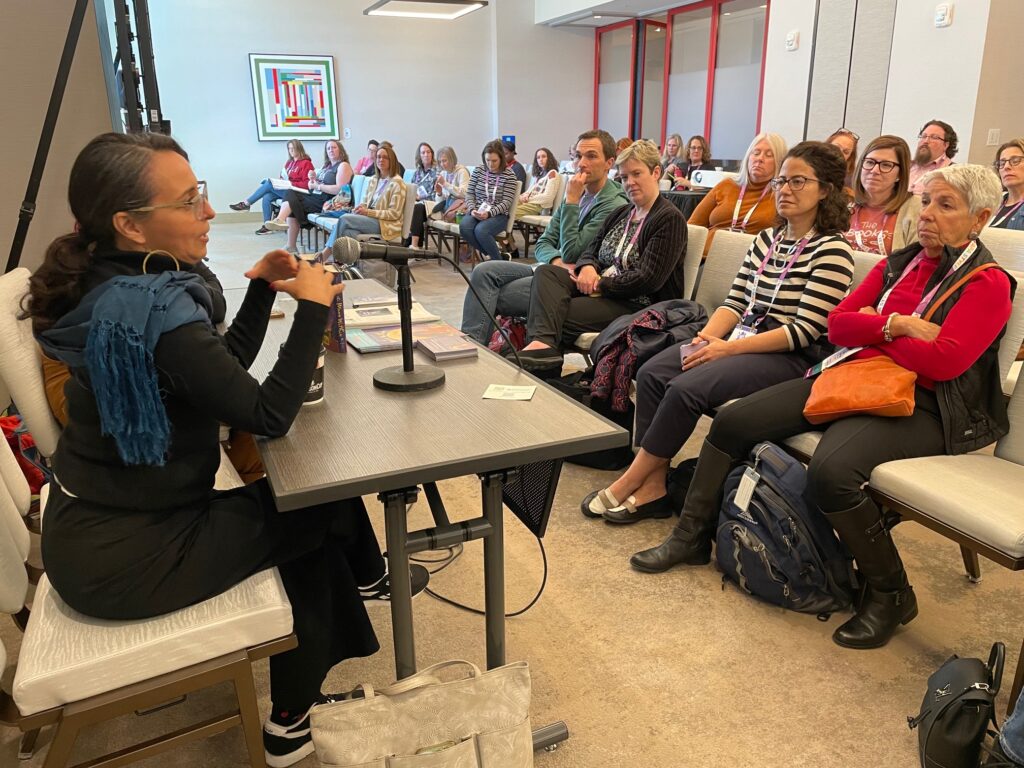
Amanda: Is there anything else you’d like to highlight from the event?
Aliza: To stand in front of several strangers and talk about something so personal, yet so common, quickly opened the floodgates of conversation. That showed all of us that there is a willingness and an appetite to talk about topics like menstruation, we all just need to be brave enough to take the first step and say the first word.
Meet Aliza Werner

Aliza Werner (she/her) is an educator and consultant, children’s literature reviewer, former teacher, and writer. She is the Professional Learning and Social Media Manager at Bookelicious, and works at Milwaukee Film to develop critical media literacy programs for educators, students, and families as a curriculum writer and fellowship facilitator. Aliza is passionate about literacy education as a holistic and joyful endeavor immersed in multimedia, multimodalities, and inclusive, representative children’s literature. Her work is informed by her identity as an interfaith/intercultural Jewish woman, and experience with mental health and acquired disability. Aliza holds a B.S. in Deaf Education from Boston University and M.S. in Curriculum & Instruction from the University of Wisconsin-Milwaukee. She was a 2018 Kohl Teacher Fellowship State Finalist and 2021 Wilson Center For The Arts Educational Excellence Award Winner. She and her husband have two kids with paws, Liffey (wheaten terrier) and Poet (mini schnauzer), and reside in Wisconsin. World traveler. Reader. Knitter. AIDS research advocate. Auntie.
Filed under: Guest Post
About Amanda MacGregor
Amanda MacGregor works in an elementary library, loves dogs, and can be found on Twitter @CiteSomething.
ADVERTISEMENT
ADVERTISEMENT
SLJ Blog Network
The Last Book You Will Ever Read in 2024
Father’s Day Discussion: Let’s Talk About My Daddy Is a Cowboy with Stephanie Seales and C.G Esperanza
Recent Graphic Novel Deals, Late May 2024 | News
ADVERTISEMENT



